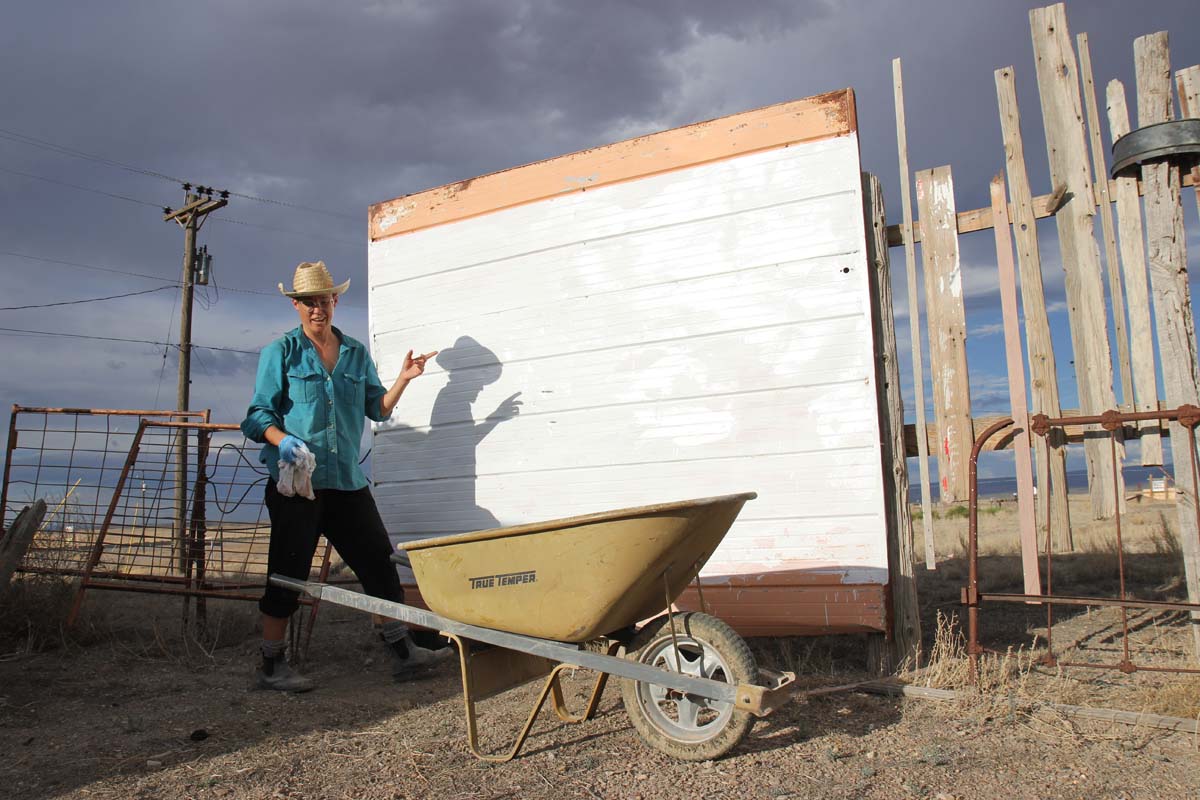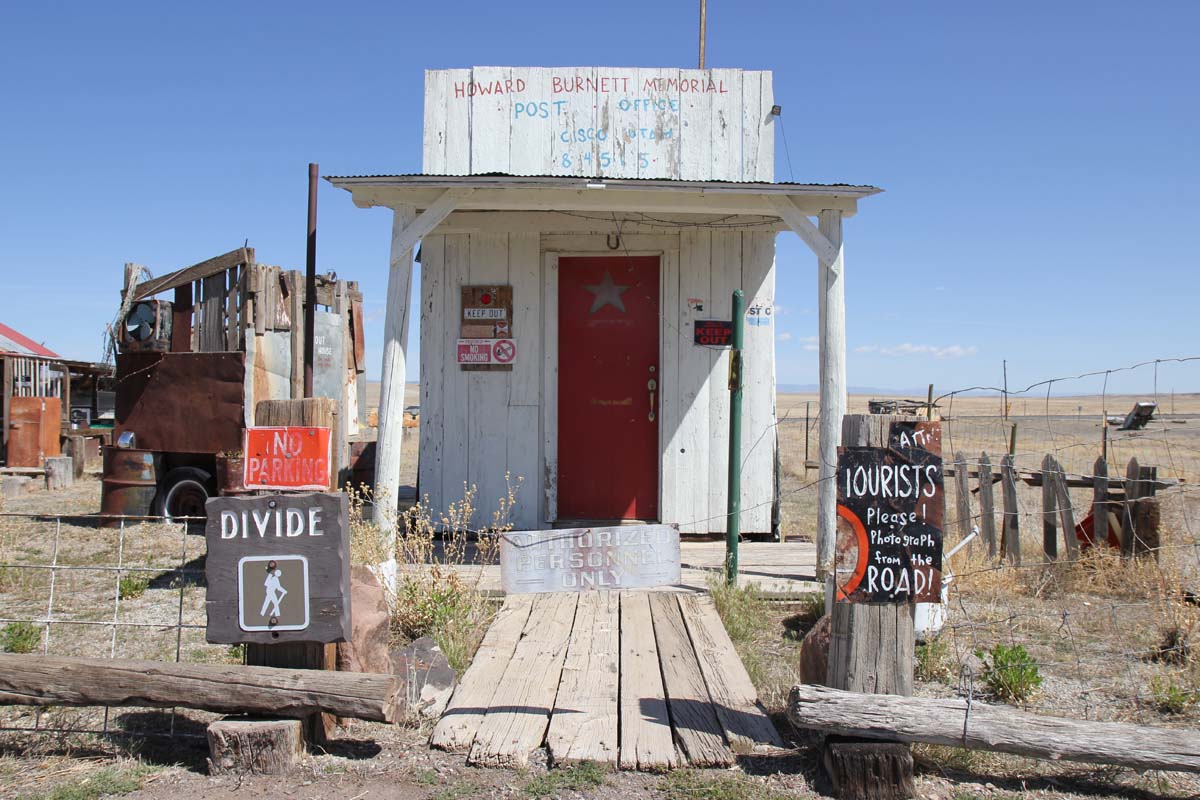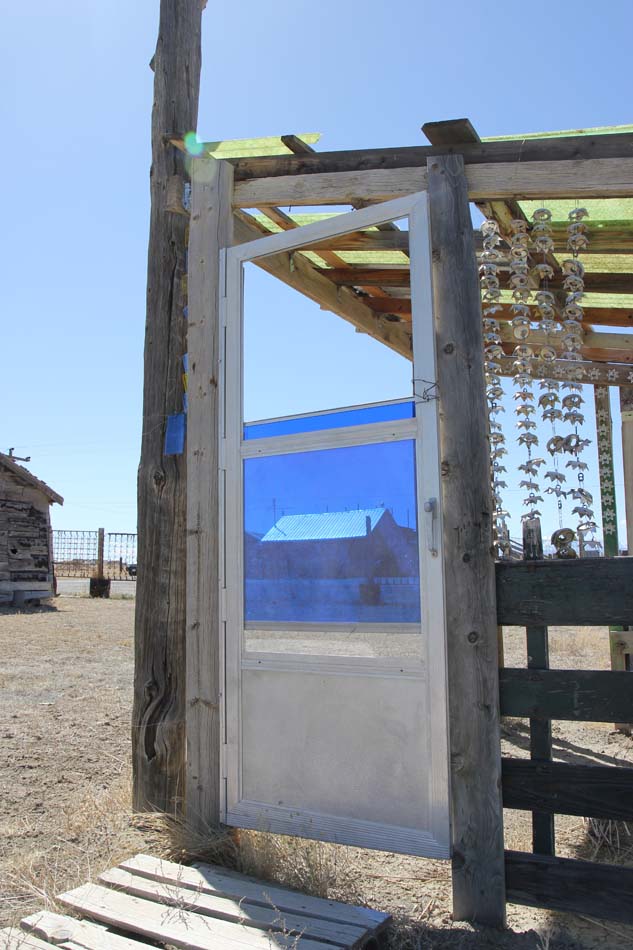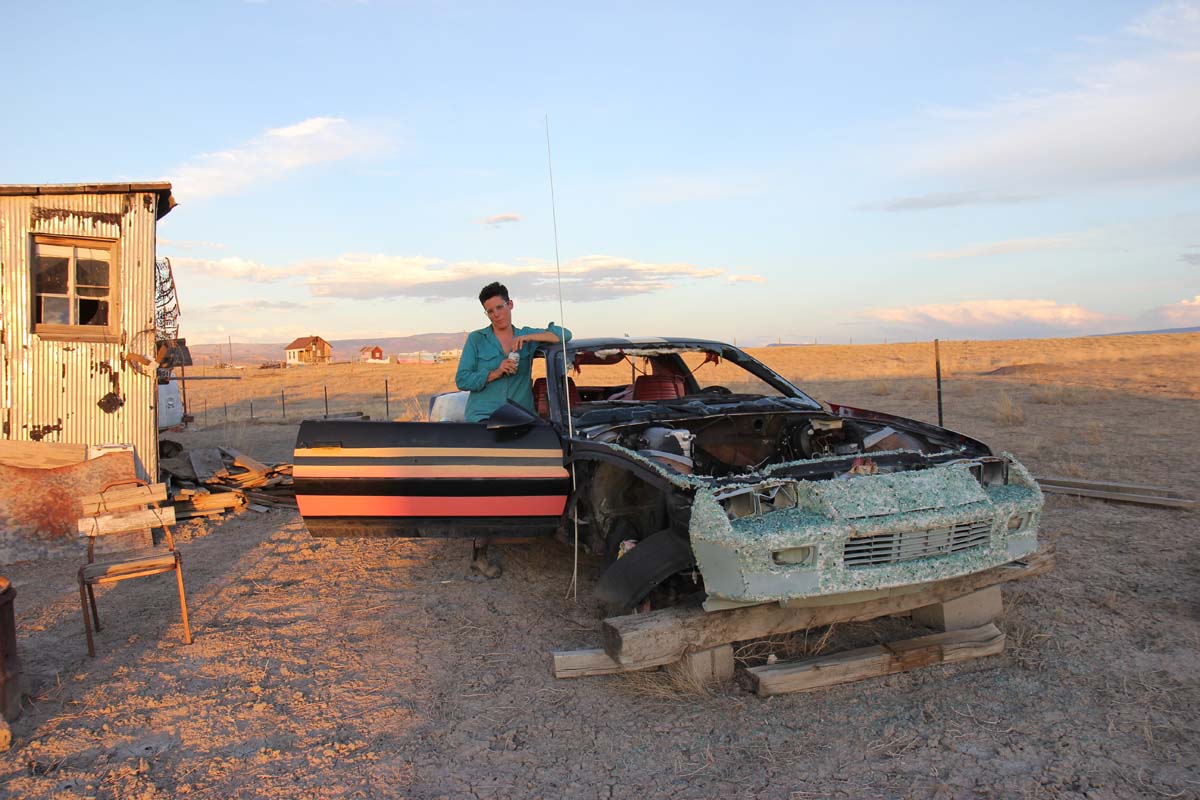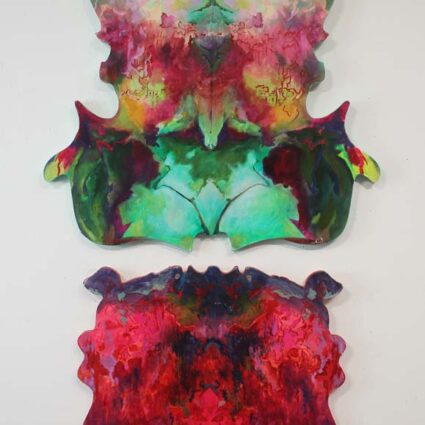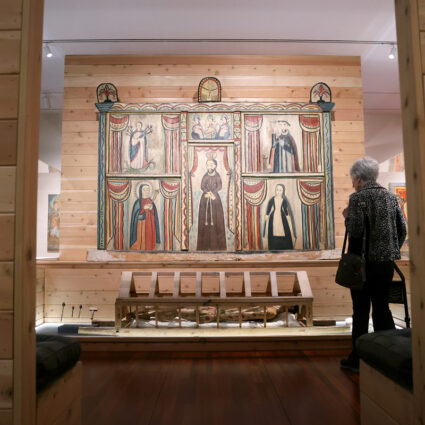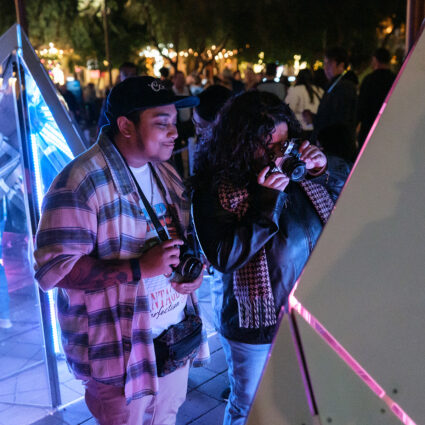After years of harassment, Home of the Brave artist residency founder Eileen Muza sold the ghost town property. The new owner will restart the program in Cisco, Utah, this fall.
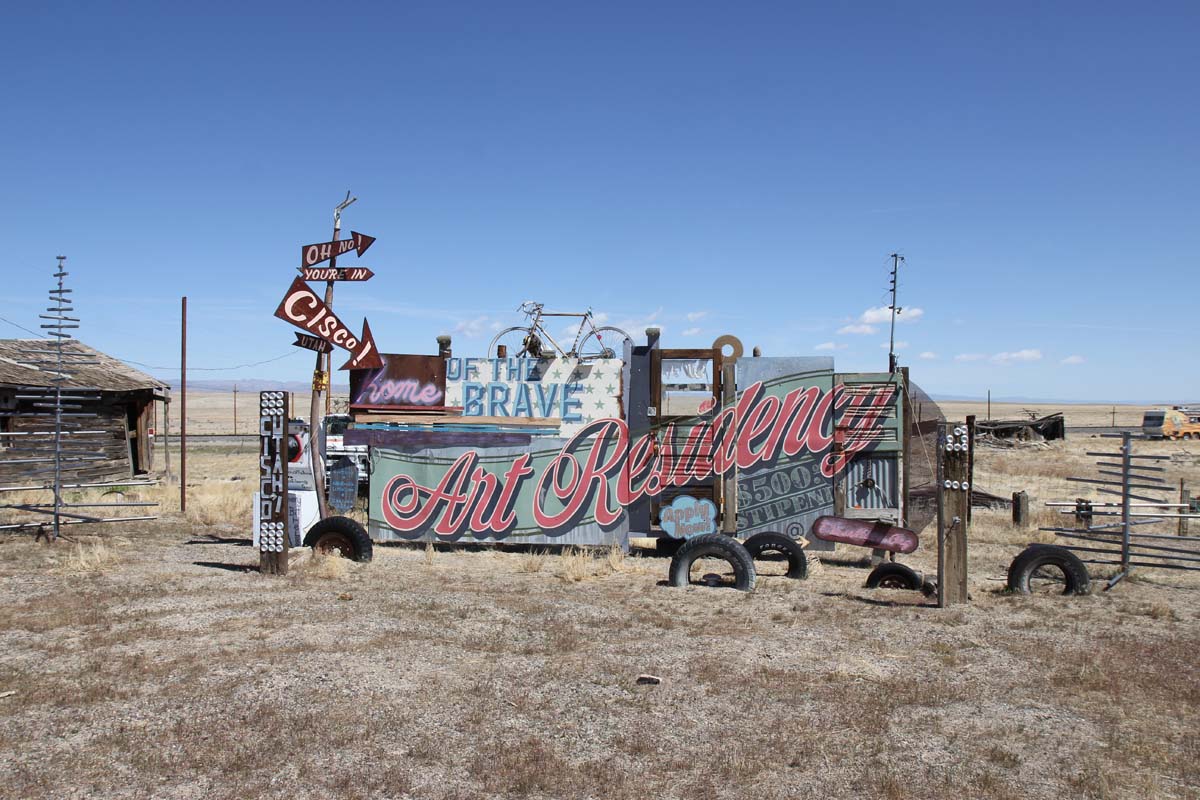
This article is part of our The Hyperlocal series, a continuation of the ideas explored in Southwest Contemporary Vol. 11.
Cisco, Utah, is an old railroad town in the desert just south of the Book Cliffs Mountains. The population fluctuates between one and three, depending on the season and whom you ask. Most people would call it a ghost town, and indeed, it has all the right stuff—cabins in various states of collapse, a century’s worth of accumulated trash, a kind of morbid intrigue, tumbleweeds.
Even the residents of Cisco call it a ghost town, an oxymoron of sorts, just a figure of speech, but it gets at something fundamental about this place, some shared belief among the people who live here that the frontier is alive and the best kind of neighbors are dead.
In fact, this is exactly what Cisco’s newest resident, Kara Bard, said when asked about the isolation of her new home. In December 2024, she purchased the site of a former artist residency called Home of the Brave, a compound of quirky, assemblage-style structures scattered across one acre of desert forty-five miles from the next closest town. Did she mind the solitude? No. “The best kind of neighbors are dead,” she said.
She was making a joke. Ghost neighbors, she meant. As for living neighbors, she really only has two who reside in Cisco on and off. One of them is what you might call the worst kind of neighbor—the kind who might try to kill you. At least that’s what happened to the previous owner of the property Bard just purchased.
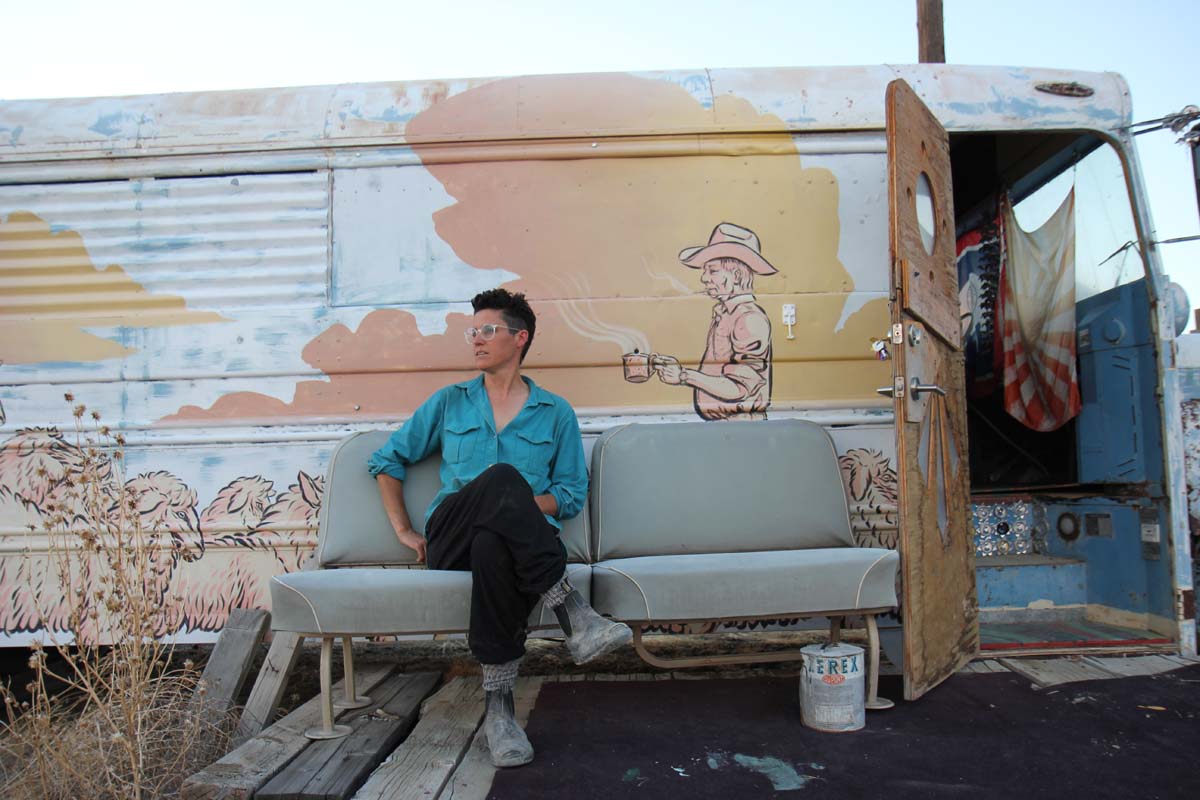
The story goes something like this: town was apparently not big enough for the two of them—the previous owner, Eileen Muza (they/them), a queer artist with a homesteading spirit and the man next door, a Dixie-flag provocateur from Fruita, Colorado, who likes to make his own wine and blow things up. For years, he tried to run Muza out of town with incessant harassment that began one afternoon with a bang. But let’s not jump that gun.
It’d be easy to dwell on this Wild West–style neighborly drama. But there’s so much more to the story than that. Mostly, Muza’s Cisco story is about building things—a home, a community, a reputation. In June 2024, I went to Home of the Brave to fill in the details as that era of Cisco history came to a close. Muza had recently put Home of the Brave up for sale, a place they spent almost a decade rebuilding from the refuse of the ghost town’s past.
They asked if I could bring some provisions when I went out for the interview. They needed a can of chainsaw gasoline and a case of pre-mixed margaritas. “To grease the memory wheel,” they said. They meant the drinks, but I wouldn’t be surprised if chainsawing was also on the agenda that evening given what I knew about Muza—a little rowdy, always tinkering with something, and perhaps the kind of person who would enjoy the shock value of firing up a chainsaw during an interview.
When I arrived, they were indeed tinkering, putting the finishing touches on “the movie theater.” By that I mean they were using an old rag to paint a piece of scrap metal white. This would become a projector screen once the sun went down. But at that moment, the final hour of daylight was hitting Muza’s face sideways, animating the silhouette of a brimmed cowboy on the fresh paint behind them.
During their time in Cisco, Muza hosted a variety of community art events and performances in many of the property’s eccentric structures. Among these are the snake ramp, a concrete skate ramp that makes a kind of Möbius loop into a large, wooden snake sculpture that protrudes from both ends of a bus, or the zone with the shed and the empty stock tank next to an old sports car embellished with glass from its bashed-in windows. “What do you do over here?” I asked during a tour of the property. Muza leaned on the frame and looked out at the uninterrupted desert in front of them, all of it glowing sunset pink. “This,” they shrugged.
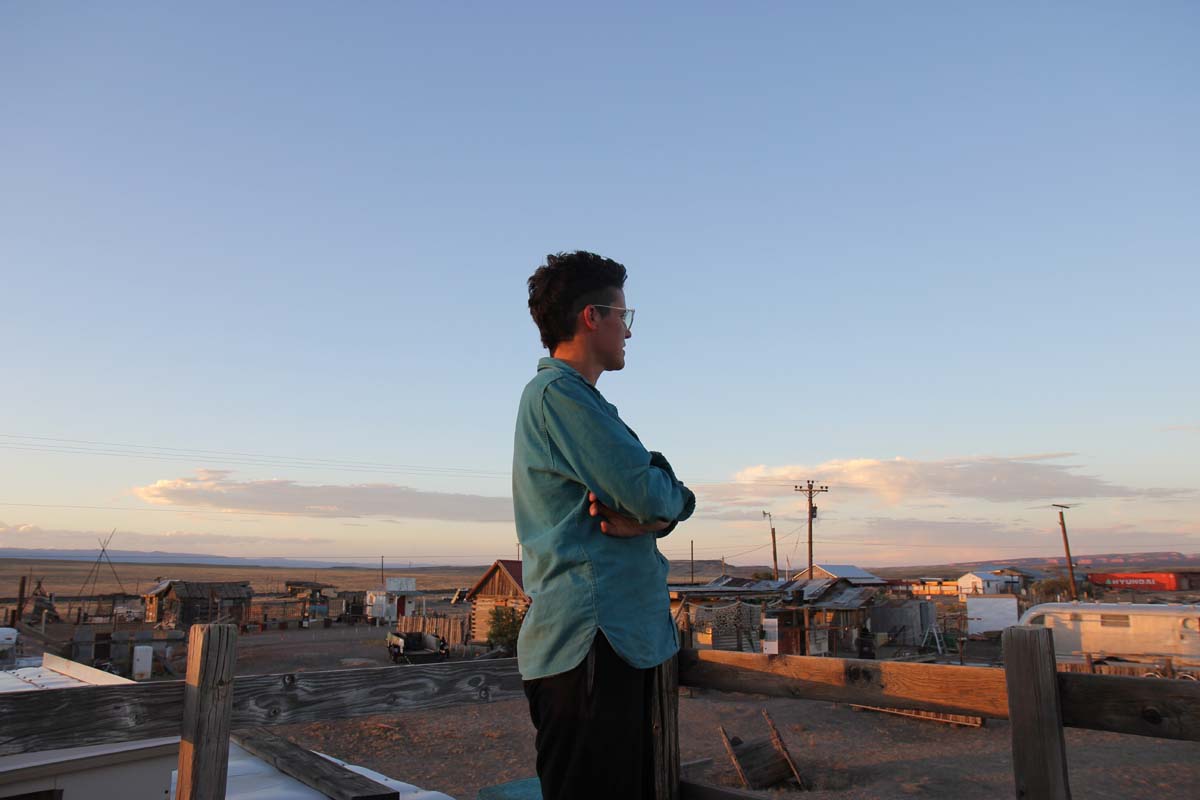
The property also includes Cisco’s original one-room post office and a log cabin built in 1923, both of which Muza restored to livable conditions. Amenities consist of two outhouses, an outdoor shower with a perfect view of the La Sal Mountains, and a woodfired bath, a true luxury considering all water in Cisco has to be hauled in. About a half dozen campers dot the property as well, all of them colorfully painted and spruced up for guests, of which Muza had many. They said they hosted hundreds of people over the years, a mix of tourists, friends, and artists who participated in the residency.
Our first stop on the property tour was the log cabin. “I went through layers and layers of what people did to this house. Fake wood paneling, chicken wire plaster, paint, wallpaper,” they said, touching the now-bare planks of original wood. “Just one of many people who’ve lived here,” they said, pointing to something on the wall. In very faint pencil, the name of a former resident, Jesse Gruver, was inscribed on the wood.
Things have happened here that I could’ve never imagined.
We left the cabin and made our way across the dusty, bentonite clay toward a long stack of rubber tires. “You can look at these like they’re trash,” Muza said, getting closer to the tires to inspect them. “But if you look at each tread individually, see how far people went with some of them. Tractor tires, really old snow tires. When you sit with things for a while, build with them, it changes what they are. A wall.”
We walked back toward the movie theater and sat down. Muza started a fire despite the summer heat. They had some trash to burn. We split a margarita between two teacups and began rolling back the memory wheel.
“I love it here, but I know it’s time to go. I told myself I wouldn’t stay past forty,” said Muza, thirty-nine years old then. “I came here for an experience, and that’s definitely what I got. Things have happened here that I could’ve never imagined. I guess it’s been a success for me in that way.”
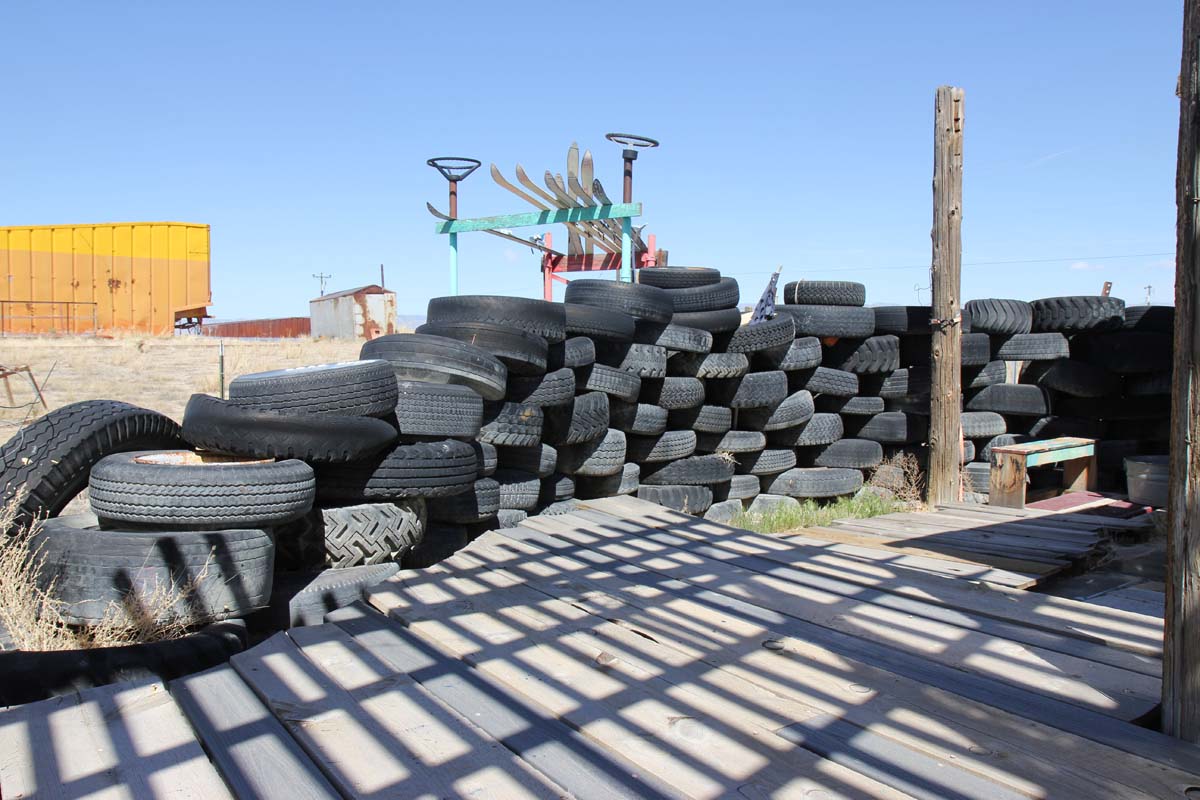
Some of those things include a funeral, a wedding proposal, two years of documentary filmmaking, numerous and varied feats of engineering, art shows, poetry readings, film screenings, community meals, multiple instances of vandalism, several shootouts, the explosion of one medium-sized pickup truck, and a nighttime run-in with a traveling cat-food saleswoman.
“Looking back, I’m probably most proud of the way this place brought people together. A lot of artists met here and became friends,” they said. “There’s a strong sense of community among the people who’ve come here and built things.”
When fostering that community, they especially wanted to include other queer artists. “My intention was to get people to come out here who normally wouldn’t,” they said, meaning queer and trans people who might otherwise avoid conservative, rural areas in the region.
“I wanted to create a safe space for queer people in rural Utah. And I mean, I’m not an idiot. I did expect some pushback from people who might not be happy with that. But there’s expecting it, and then there’s knowing exactly what that means,” they said.
In this case, what that meant was continuous harassment from Muza’s neighbor that began as soon as the artist residency program opened in 2019. The violent threats occurred so frequently and for so long that Muza was having a hard time summarizing the extent of what happened, rattling off a list of incidents with the deadpan brevity of someone who had learned the hard way how fact can be stranger than fiction. “I was shot at here while I was alone,” they said eventually. “That was an ordeal.”
The way Muza tells it, two men in a parked car—later revealed to be the neighbor and his brother-in-law—started firing at Muza while they were outside one afternoon working on their property. “All of a sudden, I started hearing things get hit around me. I remember thinking: This can’t be real. But sure enough, I turned around, and there were two guys pointing guns at me.”
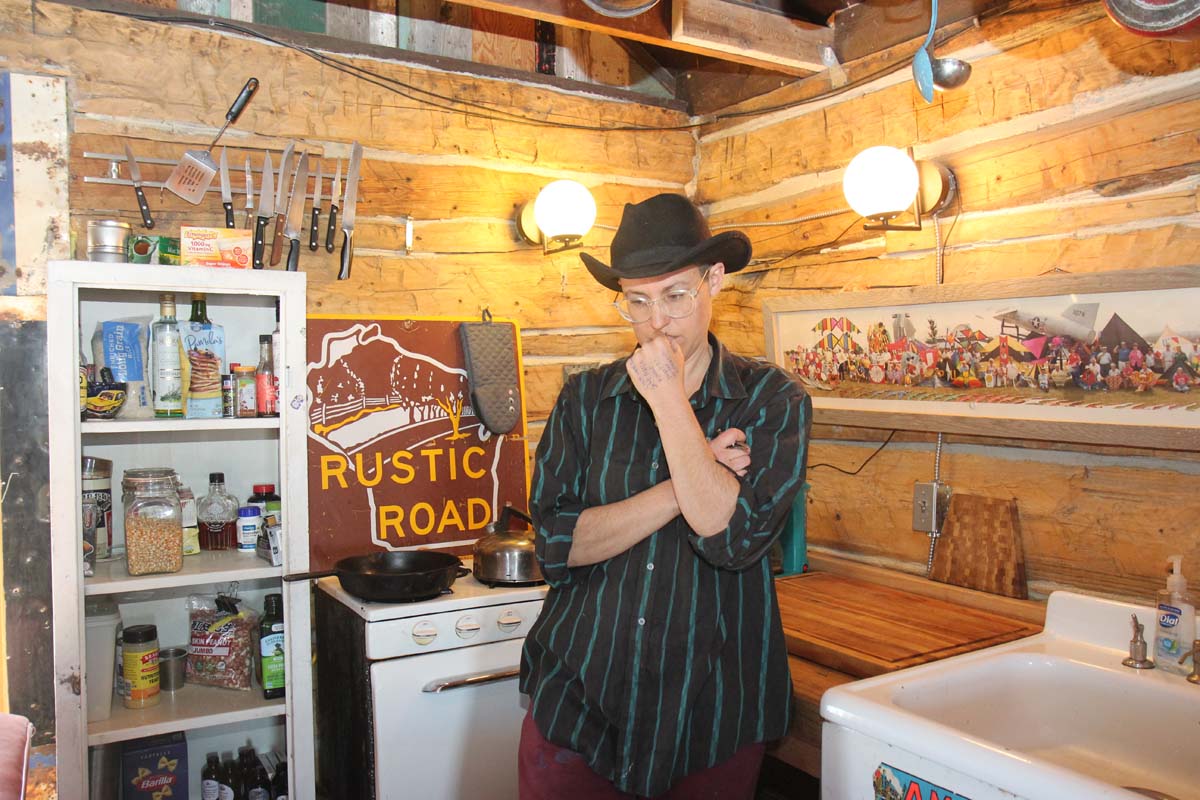
Muza made it inside unharmed and called the Grand County Sheriff’s Office, who sent deputies to Cisco. “The sheriff basically told me, ‘Yeah, we know those guys. They’re not going to bother you again.’ That kind of thing,” Muza said.
But that was hardly the case. Muza was eventually granted a protective order against their neighbor in 2021. During the litigation process, they compiled a lengthy list of incidents, including multiple reports of vandalism and trespassing, and, at one point, a noise complaint regarding the neighbor’s bird cannon, which had been programmed to detonate every minute and a half for twenty-two consecutive days.
“I mean, I could keep going,” they said eventually, by which they meant they were done. I knew enough to know I didn’t know the whole story yet. There were family feuds to discuss and hairs to split over the county’s zoning codes. There were disparaging comments to make about tourists. But by now, it was dark, and besides, Muza had already warned me before we started the interview: “No one ever gets the story right.” And how could they? The whole thing was like some kind of riddle. It was Home of the Brave, but not the land of the free. It was the exact outcome one might expect from a story about building community in a place defined by its lack thereof, and yet the details in between were still somewhat unbelievable.
It was Home of the Brave, but not the land of the free.
Earlier I had asked Muza whether a ghost town exists if no one is there to witness it. They laughed and said they didn’t know. But I think they do know. They know Jesse Gruver lives on in the swoop of his J, but only so long as someone reads his name. And isn’t that a nice idea, that even the most unremarkable among us could transcend our own lives if the right kind of person found our trash and had enough of an imagination? I understood the frustration: “No one ever gets the story right.” What was the real story, then? They flashed a cheeky smile. “You’ll have to read my memoir,” they said.
Bard will take the Cisco story from here. She plans to reopen the residency program this fall. It won’t be Home of the Brave anymore—Muza said she had to give it her own name—but Bard says she’ll keep the spirit. “You have to be brave to want to come out here,” she says. Applications for the Held Horizon artist residency are now open for the first four-to-six week stay beginning on October 4.

